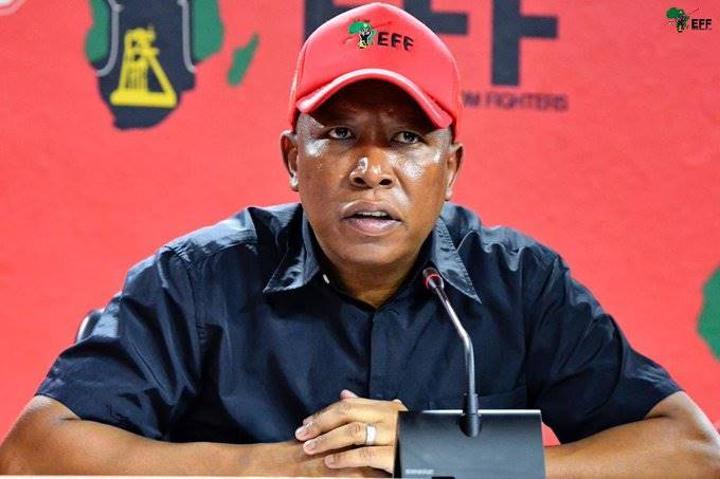Africa-Press – South-Africa. The EFF is working with the ANC to deny both the DA and the ANC dominance of major metros in Gauteng. The ANC falls for it because it gets to participate in coalitions, and it believes it is co-running these together with the EFF behind the scenes, argues Siphamandla Zondi.
The cooperation between the ANC and the Economic Freedom Fighters (EFF) is born of mutual necessity from both sides and it is likely to repeat at the national level after the 2024 polls.
The ANC’s interest is to maintain its political dominance over the South African political landscape. It has seen this dominance slip out of its hands gradually over more than a decade now, beginning in the Western Cape where it first lost the Cape Town Metro and then the province to the DA. Its support base in major metros has declined quite markedly since 2016, a sort of a nose dive that has rocked the local government landscape resulting in political and administrative turbulence for seven years now.
While the ANC hoped to claw back to power in the 2021 local government elections, its internal weaknesses, declining service delivery record and a dire economic situation saw it deteriorate further.
The birth of the EFF was an outcome of the internal ANC troubles. It was the ANC’s loss of its youth wing to form the EFF. Its policy agenda was created within the ANC Youth League in the past three decades, especially a radical approach to economic transformation, including land expropriation, nationalisation of strategic sectors of the economy, and a pan-Africanist-cum-anti-imperialist foreign policy aimed at radical transformation of global relations in favour of the poor, the workers and the developing countries.
Centrist political postures
The EFF has grown to become the third biggest party in South Africa, a remarkable feat for a small party with a radical and militant posture. South Africa’s political landscape has been known to favour centrist political postures. This is why it has been pretty much a two-party horse race for three decades, between the centre-left ANC and the center-right SA. The EFF is quite radical leftist.
Its interest is clearly not to govern fully but to exercise serious political and policy influence through tactical alignments. It has the character of a typical game changer and kingmaker, using its small electoral muscle to significantly influence decisions about the make-up of many local councils. It thus helped unseat the mighty ANC and its coalitions in Gauteng metros. It also did the same to unseat the DA coalitions.
Currently, the EFF is working with the ANC to deny both the DA and the ANC dominance of major metros in Gauteng. The EFF comes across as a cunning maker of coalitions without a dominant party with mayors from very small parties. The ANC falls for it because it gets to participate in coalitions, and it believes it is co-running these together with the EFF behind the scenes. Whether this is the case depends on how you measure this influence behind the scenes.
Since the EFF wants to deny the two big parties, it is achieving its goals through these coalitions of equals with mayors from small parties, keeping the ANC and DA at bay. Together they keep the DA coalition out of power, a coalition further weakened by the failure of the DA to keep the Patriotic Alliance and the ActionSA pleased in its Moonpact alliance.
Kingmakers?
The ActionSA and Patriotic Alliance seem interested in kingmaking too. They hold the DA to a pattern of relationship where these two decide the fate of the DA itself and its coalitions. They are not any less cunning than the EFF in that they toss at the DA the possibility of leading a governing coalition provided it makes these two parties significant in such a coalition, not just in terms of allocation of political offices, which the DA finds easy to negotiate, but also in terms of crucial decision making over political and policy direction in general.
The question is how long will these alliances last? It seems that we will have the status quo until 2024 elections, when voters will signal what kind of political landscape we will have nationally. It is unlikely that we will have an ANC-dominated coalition or a DA-dominated one for now because either will need the EFF, ActionSA and Patriotic Alliance. The ANC-EFF is likely to dominate the terrain till the 2024 elections.
The ANC will not rock this boat because, to do so, it needs alternative partners with which it shares some political ideas. The EFF is unlikely to end the coalition, too, as it serves its purpose best and would undermine its kingmaking power if it went around looking for an alternative alliance in a situation where the left wing of our politics is diminished into two parties with seats in councils, ANC And the EFF.
The DA has some hard work to do to find a formula to make a success of its alternative coalition. It is not just the victory of the white liberals in internal DA leadership contests that undermine such a possibility but it is that it is an arrogantish leadership epitomised by the tone and posture projected by John Steenhuisen and Helen Zille.
– Siphamandla Zondi is a director at the Institute for Pan-African Thought and Conversation at the University of Johannesburg.
For More News And Analysis About South-Africa Follow Africa-Press






